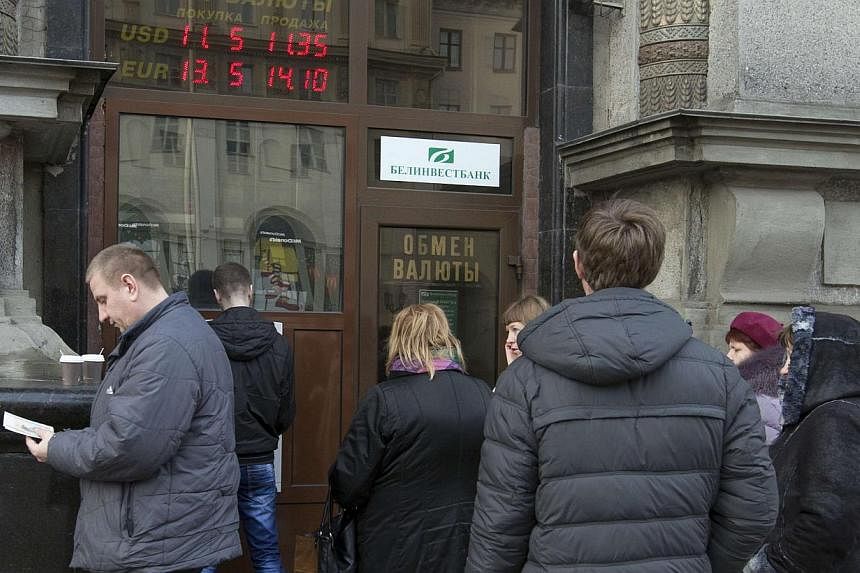MOSCOW (REUTERS) - Russia announced a US$35 billion (S$ 48 billion) "anti-crisis" spending plan on Wednesday to bail out an economy battered by Western sanctions and falling oil prices, but gave few details of the deep cuts it said would be enacted this year to pay for it.
The 2.34 trillion rouble spending plan includes 1.55 billion roubles to support banks, most of which was already announced last year and which many analysts say is still a fraction of what Moscow will have to spend to keep its lenders afloat.
The plan focuses mainly on bailing out banks and big companies to help them weather the immediate impact of the crisis, at the expense of long-term development programmes. Extra money would also be spent to increase pensions in line with higher-than-expected inflation.
"This plan is something like a cushion to avoid a rapid deterioration in Russia and support several of the most important economic agents (and provide) social support," said Sberbank chief economist Yulia Tseplaeva.
President Vladimir Putin has ordered that defence and social spending cannot be cut, underscoring his focus on preserving Russia's international might and social stability.
Despite these constraints, Finance Minister Anton Siluanov said on Tuesday that the anti-crisis plan would not add to total budget expenditures, because of budget reserves and cutbacks elsewhere.
The plan said the government would cut "the majority" of its planned expenditures by 10 percent in 2015, except for defence, social spending and debt repayments, with a view to balancing the budget by 2017. But it gave few details on those cuts, beyond saying that some long-term investment projects would be delayed.
Ivan Tchakarov, Russia economist at Citibank, said that the plan was necessarily vague, as Moscow has yet to revise its budget and macroeconomic forecasts for this year. "It's a typical government-led programme. It focuses on subsidies," he said. "I haven't seen any particular measure that strikes me as a structural reform, it's just talk." Some major items in the plan are being financed from the National Wealth Fund, an US$80 billion sovereign fund that had previously been assigned to fund infrastructure projects.

